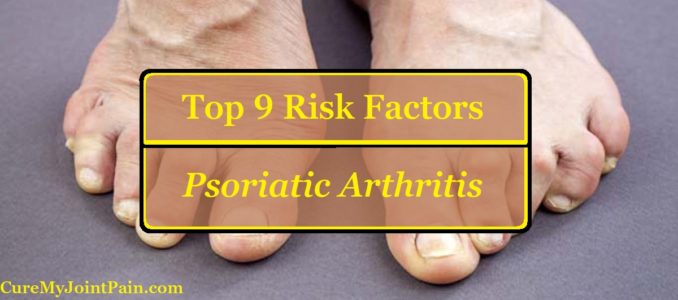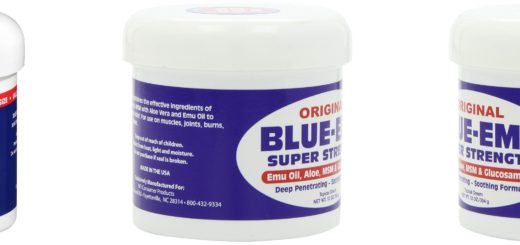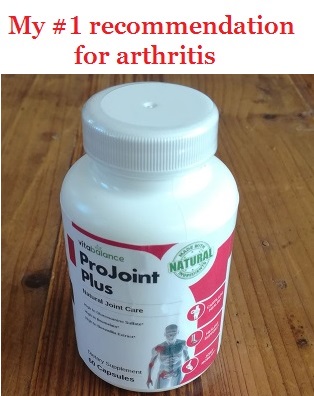Top 9 Risk Factors For Psoriatic Arthritis

If you’ve been dealing with joint pain for a while and you haven’t found the cause, psoriatic arthritis could be the responsible. You surely heard about this condition, as it’s the most common form of inflammatory arthritis, after RA.
But do you get psoriatic arthritis that easily? There must be something else involved. For this reason, let me tell you which are the top 9 risk factors for psoriatic arthritis.
You should have at least one of these factors to develop PA at one point. But having several of them doesn’t mean you will surely get the condition. So if you think you could be at risk, this article is the best way to find out.
1. Psoriasis
You can’t really have PA if you don’t have psoriasis first. That’s why people with this skin condition have the highest risk for psoriatic arthritis.
According to a 2010 study, up to 26% of patients with psoriasis develop PA at one point in their lives. To be honest, this is a pretty large percent. Obviously, patients with severe forms are much more likely to get PA. But that doesn’t mean you’re safe from this condition even if your psoriasis comes up from time to time.
So how can you prevent an eventual PA if you have psoriasis? Unfortunately, there’s not much you can do about it. It’s more of a matter of luck. But the best thing you can do is to monitor your joints and nails. That’s because nail changes are one of the first symptoms of psoriasis.
Once you notice something’s wrong, make an appointment to your doctor. If your psoriasis turned into arthritis, you can keep it under control if it’s diagnosed early.
2. Genetics
Just like other forms of arthritis, PA can be inherited. If someone from your family had it, you have higher chances to get it as well. Once again, there’s no real way you can prevent it.

But according to a recent study, it’s even more complicated. PA is genetically linked to psoriasis, and let me explain you exactly how.
Let’s say one of your parents has psoriasis. Chances are that you also suffer from this affection at one point. It’s not something sure, but you might. So far, there’s nothing unexpected. However, you also have higher chances to develop PA, even though your parents didn’t have it.
Researches say that around 40% with psoriatic arthritis have someone in their family suffering from this condition. Compared to other autoimmune diseases, this percent is huge. That’s why PA is strongly connected with genetics.
So if you have a family member with PA or even with psoriasis, you’re at risk, that’s all that matters.
3. Middle Age
You would expect that older people to be more at risk, right? Well, when it comes to PA, it seems like middle age is a more common risk factor.
Scientists believe that people among 30-50 are more likely to develop this condition, compared to other group ages. That sounds pretty unexpected, in my opinion. Joint problems tend to appear as you grow older, but psoriatic arthritis seems to be the exception.
Obviously, it’s not impossible to develop PA when you’re 65 or older. There are simply less cases at this age, but it is still possible.
But there’s another difference. Compared to RA (that affects mostly women), PA tends to affect both genders in the same percent. So being a women doesn’t put you at risk for this condition.
4. Streptococcal Infections
Did you know that often strep throats are linked to psoriatic arthritis? I surely had no idea about it.
 A strep throat is a bacterial infection with Streptococcus, which cause inflammation, pain and white spots in the throat. Though it’s not a severe condition, it’s not something you can treat on your own, as antibiotics are necessary.
A strep throat is a bacterial infection with Streptococcus, which cause inflammation, pain and white spots in the throat. Though it’s not a severe condition, it’s not something you can treat on your own, as antibiotics are necessary.
So what does a throat infection have to do with psoriatic arthritis?
Well, scientists believed there was a connection between them for a long while, but they didn’t have any solid evidence. But a 2013 study proved there’s a link between strep throat and psoriasis. According to it, people who had regular throat infections with Streptococcus have a higher risk for psoriasis and psoriatic arthritis.
But if you think about it, there’s no surprise. Streptococcus can also cause joint infections, so it’s one of those hidden causes of joint pain.
However, this isn’t such a dangerous risk factor as genetics. So if you had lots of throat infections in your childhood, this doesn’t mean you will develop PA when you grow up. Compared to the other risk factors, chances are pretty small actually. So don’t panic.
5. AIDS
HIV virus decreases your immunity gradually, so at one point you can get every possible infection and condition. That’s why people infected with this virus have higher chances to develop any form of arthritis, including PA.
They simply have a compromised immune system, so any condition can affect it much easier.
Is there any way to prevent it? Well, once you are diagnosed with AIDS, you will start to follow a long treatment with antibiotics and antifungal medicines, just for prevention. But these drugs can’t really prevent an eventual arthritis, so if it comes up, there’s not much you can do.
Besides cancer, HIV infection is probably the biggest health problem in the world. There is no cure for the virus, so once you get infected, it’s hard to have the same life as before.
6. Smoking
 Though it could be a risk factor for almost anything, smoking is definitely dangerous even for PA.
Though it could be a risk factor for almost anything, smoking is definitely dangerous even for PA.
A study from 1999 showed that people who smoke have almost 50% more chances to develop psoriasis in the nearby future. There are no real evidence about psoriatic arthritis, but as psoriasis is a risk factor itself, things are pretty clear.
Now, don’t imagine that smoking itself will cause you psoriatic arthritis. There are pretty low chances, especially if you don’t have another risk factor. But if you already have psoriasis or if someone from your family had PA, I would recommend you to give up smoking.
I could give you 10 other reasons, none of them related to PA. Smoking harms your body in lots of different ways, so why treat something if you can prevent it?
7. White Skin
Believe it or not, but people with fairer complexions are more likely to develop psoriasis and PA. Is it because they are more likely to get sunburns?
We can’t really tell. In fact, psoriatic lesions tend to get better when they’re exposed to sun. That’s why sun is actually recommended to people with psoriasis, so things are really weird.
But there’s one thing we know for sure. There are almost twice as many white people with psoriasis as dark-skinned people, according to studies. Obviously, the percent is also higher for psoriatic arthritis.
That’s why fairer complexions could be a risk factor for PA. Don’t imagine it’s a decisive one, but you have higher chances to get the disease if you have white skin.
8. Alcohol Excess
 Alcohol doesn’t cause joint pain itself, but it can worsen an existing problem. That’s why doctors recommend giving it up if you have arthritis or any similar joint conditions.
Alcohol doesn’t cause joint pain itself, but it can worsen an existing problem. That’s why doctors recommend giving it up if you have arthritis or any similar joint conditions.
Alcohol goes hand in hand with smoking, so studies proved that both of them can increase the risk for psoriasis. Consequently, there’s also a higher risk for psoriatic arthritis, so do your best and stay away from it.
Besides, alcohol abuse is an important risk factor for gout, which is another form of arthritis. As it dehydrates the joints, a gout attack can appear more anytime.
There’s no problem if you drink a glass of wine daily. Not even beer shouldn’t be a problem, as long as you don’t consume too much. The quantity is actually essential, so if you can’t give up alcohol completely, at least try to drink a decent quantity.
9. Teenage Obesity
That’s probably the most unexpected risk factor for PA, if you ask me.
According to Psoriasis Organisation, teenagers who are obese have much higher chances to develop psoriatic arthritis at one point. The study was based on 18-year old people and 20% of them developed PA by the age of 35. This is definitely a very high percent, in my opinion.
However, there aren’t lots of studies on this topic. Researchers have already proved that obesity and psoriasis are linked, but all the studies were conducted on adults. So it’s hard to draw a conclusion about teenagers from these studies.
Therefore, teenage obesity is a risk factor for psoriatic arthritis, at least for now. There weren’t any studies that proved the opposite, so at this point I see it as a pretty big one.
Final Thoughts – So Are You At Risk?
Even though there are 9 risk factors for PA, not all of them are as important. I would state psoriasis, genetics and maybe obesity as the top one. The others are relative, if you ask me.
You will never develop PA just because of drinking lots of alcohol or because of having white skin. It’s not impossible, that’s for sure, but you would normally need another risk factor besides.
So don’t worry too much from this point of view.
However, if you’re highly at risk and you want to prevent this condition, there is something you can do. Try to follow a specific diet and keep an eye on any potential symptom that comes up. If you discover it early, psoriatic arthritis can be kept under control much easier. You will never be able to cure it, but with the right treatment, you could feel completely normal.




